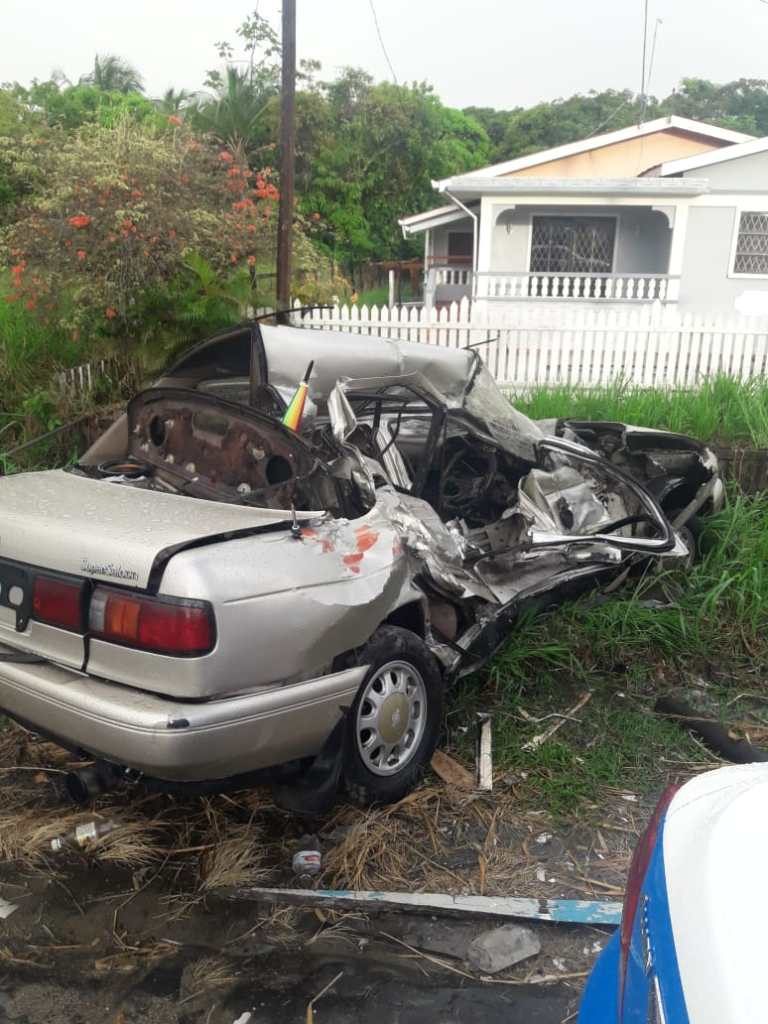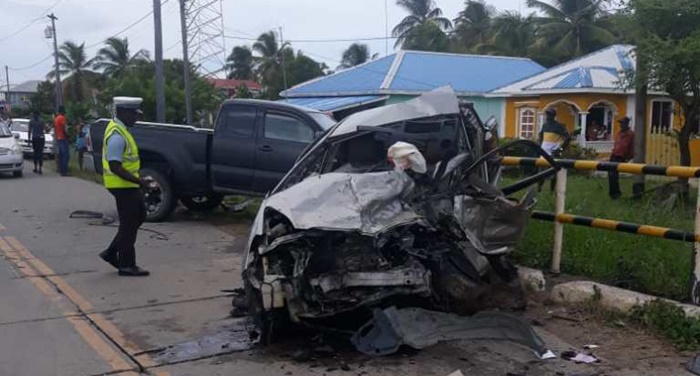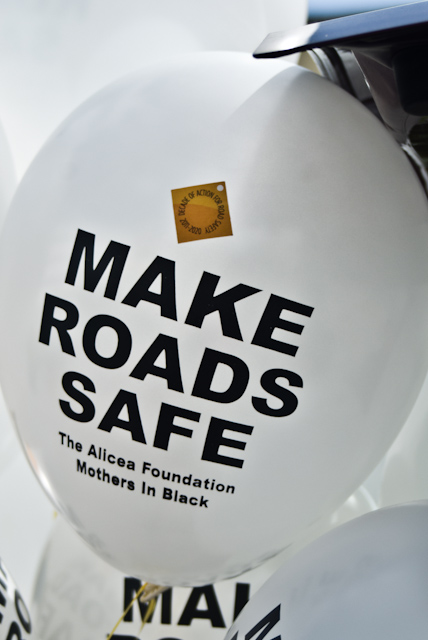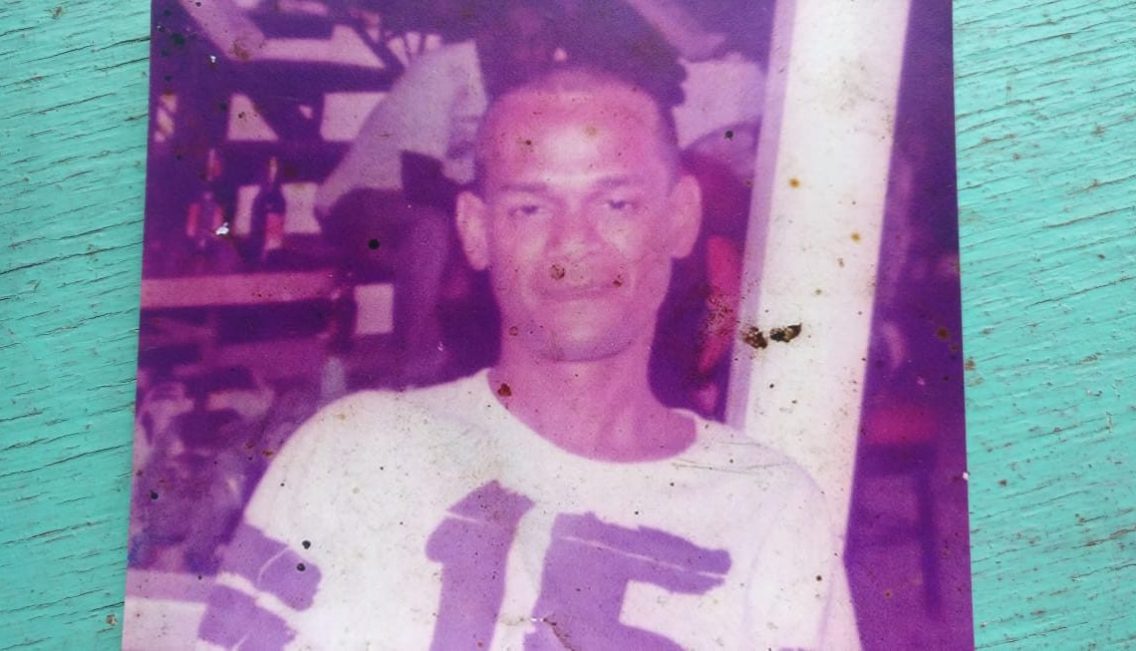By Neil Marks
Chitwantie Bissessar had just finished cooking the family meal and was relaxing near her window.
It was September 10; she had taken a day off from work and was relaxing home and preparing for the next day when she would have to get up early to go sell at the roadside at the popular “Second Bridge” in the Grove/Diamond Housing Scheme, East Bank Demerara.
As she observed the happenings in her neighbourhood, she saw her 34-year-old son Ryan Calvan walking home from the nearby restaurant he worked.
Then, in horror, she watched as her son was struck down by a speeding lorry.
She sprinted to the scene and her son was rushed to the hospital; he died the next day while receiving treatment at the hospital.
Mrs Bissessar support, the one who she said “braced” her to make ends meet, was gone.
“…you supposed to see a big person, even if it’s a little person, you supposed to see them…,” she reasoned.
Mrs Bissessar, who has diabetes and hypertension, is left to work harder to eke out a living.
“I feel bad. I feel really hurt about it,” she told the News Room during a TV interview, unable to hold back her tears.
“We would like to see the tears stop,” said Ramona Doorgen, the Coordinator of Guyana’s National Road Safety Council, which has launched a new campaign that will be rolled out next year.

The campaign is called “Stop the tears” and will feature a tear drop as the main image on billboards, caps, t-shirts and other materials.
“We are hoping to appeal to a person’s compassion and get road users to take note of using the road correctly.
“We can stop many of our mothers and daughters and sisters from the pain of losing their loved ones,” Doorgen told the News Room.
The Guyana Police Force has reported that 111 persons were killed on the roads thus far this year, about seven percent more than for the same period last year.

“We hear about who is killed and injured, but hardly do we ever really consider the ‘spill off’ effects.
“The person who is killed is someone’s husband, son, father and breadwinner,” said Traffic Chief Linden Isles.
He recalls that one East Coast Demerara woman lost her husband, leaving her to take care of their only child.
“He was the breadwinner; so that family’s life has been thrown in disorder,” he stated.
“We really have to start thinking more of the impact to society on accident – how it tears families apart – wives without husbands, husbands without wives, children without their fathers, mothers without sons.
“Then too, there is the cost on the health system when a person is
“It really has
The Traffic Chief is, therefore, urging those using the roadways during the year-end festivities to be extra careful.
“We know that during the festive season there is always an increase in traffic, I would urge road users to make sure they observe the Five Cs (Care, Courtesy, Caution, Consideration
“That means they should look out for persons who are using the road carelessly.
“Drivers, especially in built-up areas should reduce their speed,”

At this time of the year too, he said, there is an increase in the use of alcohol.
“We want to urge drivers if they have to consume alcohol, don’t drive. If they are going to any social activity or function, take a taxi,” the Traffic Chief advised.
The recently released 2018 Global Status Report on Road Safety by the World Health Organisation (WHO) shows that road fatalities have increased to 1.35 million a year.
“Tens of millions more are injured or disabled every year, people who suffer life-altering injuries with
“These losses take a huge toll on families and communities. The cost of emergency response, health care, and human grief
Among the reasons for the trend he listed are people driving distracted or fatigued, others under the influence of drugs or alcohol and speeding.
In early November, experts from around the world met in Bangkok, Thailand for the 13th World Conference on Injury Prevention and Safety Promotion (Safety 2018).
“We long-lasting that the end of the Decade for Road Safety 2011-2020 is approaching, yet road traffic injuries remain a major public health and development challenge among low and middle-income countries,” participants said in a statement.
Among those who spearheaded the launch of the UN Decade for Road Safety was Denise Dias of the Alicea Foundation, which carries out its advocacy work through an
That
Dias was
(This story was made possible with support from the ICFJ-WHO Safety 2018 Reporting Fellowship Program and Bloomberg Philanthropies)












